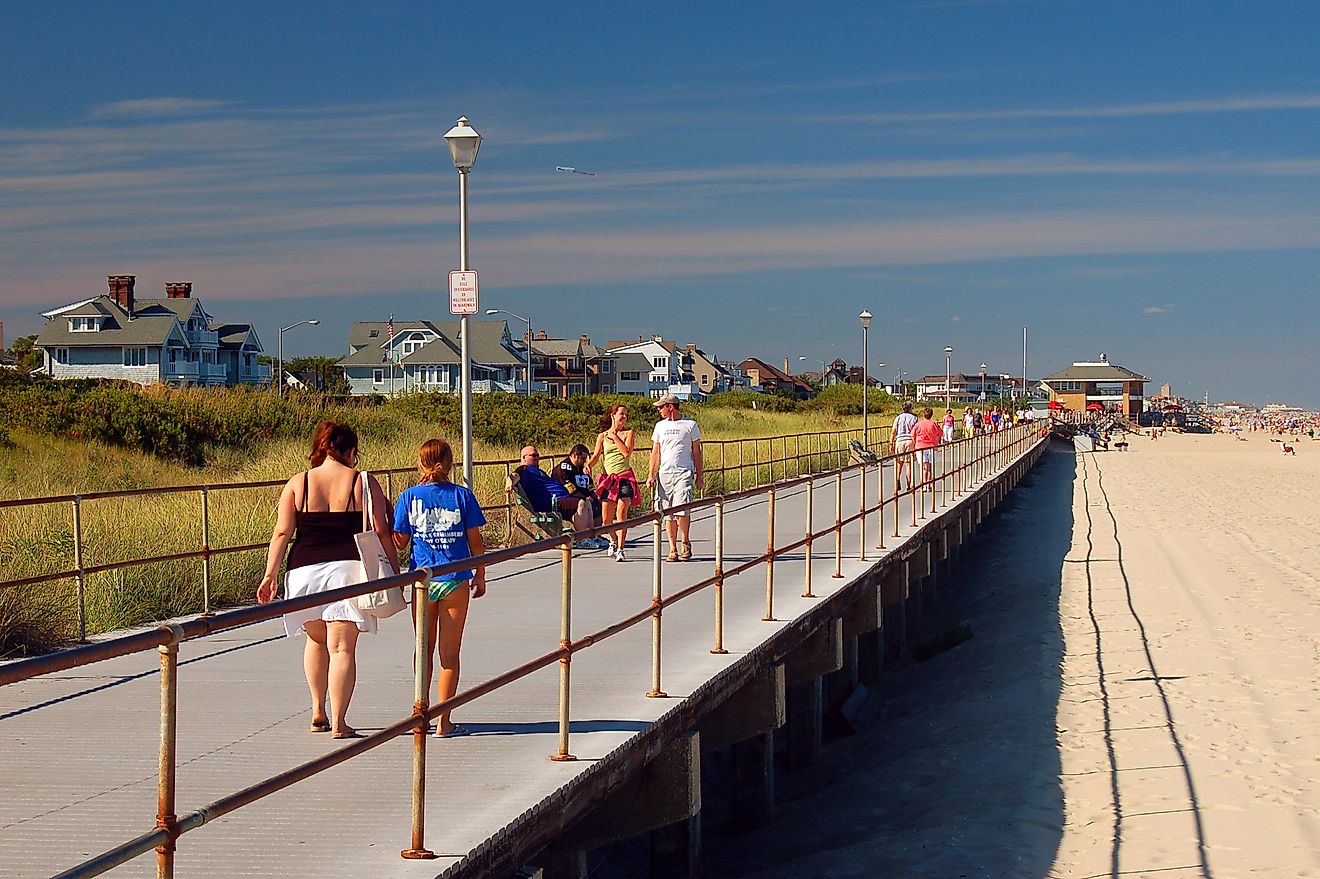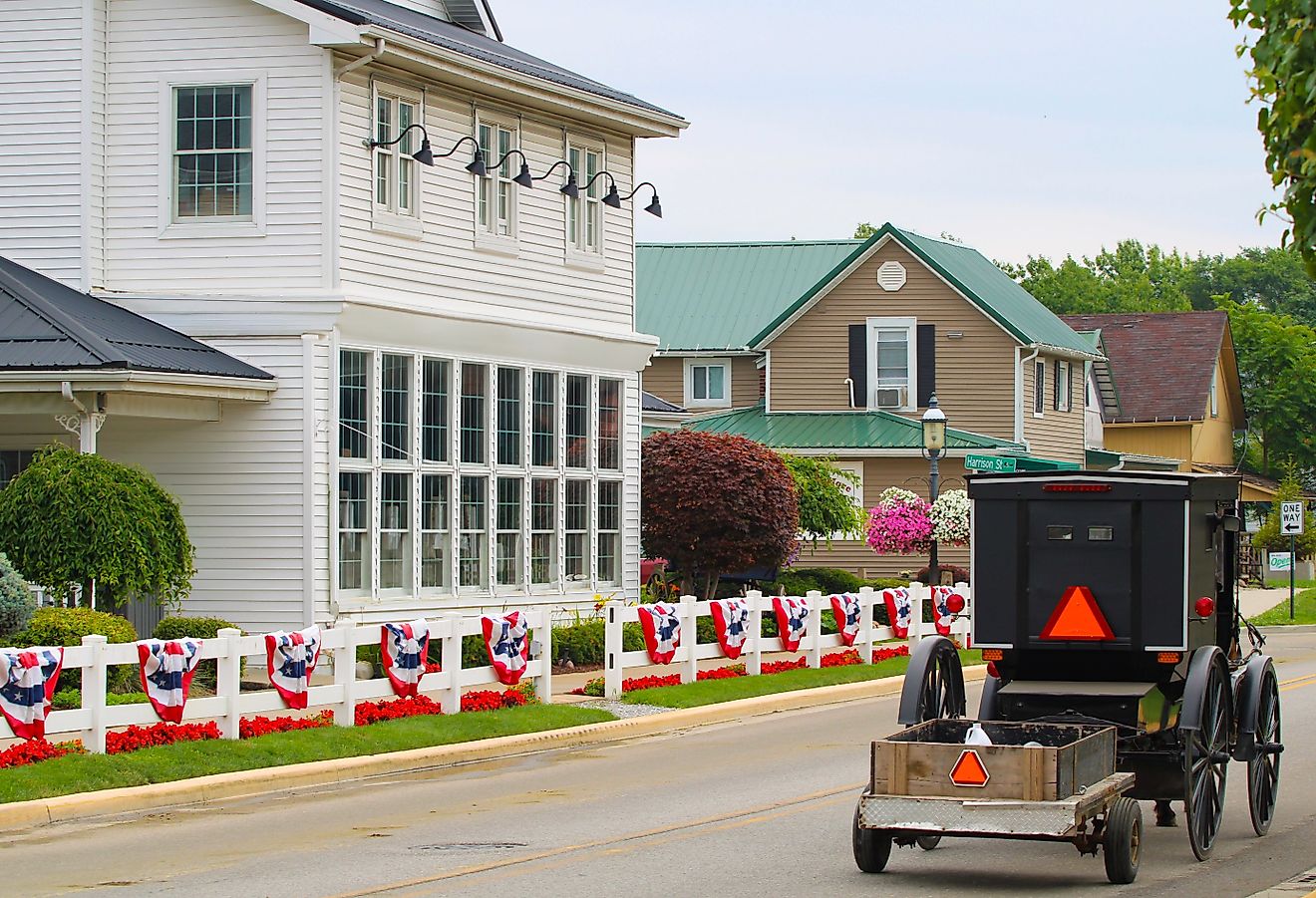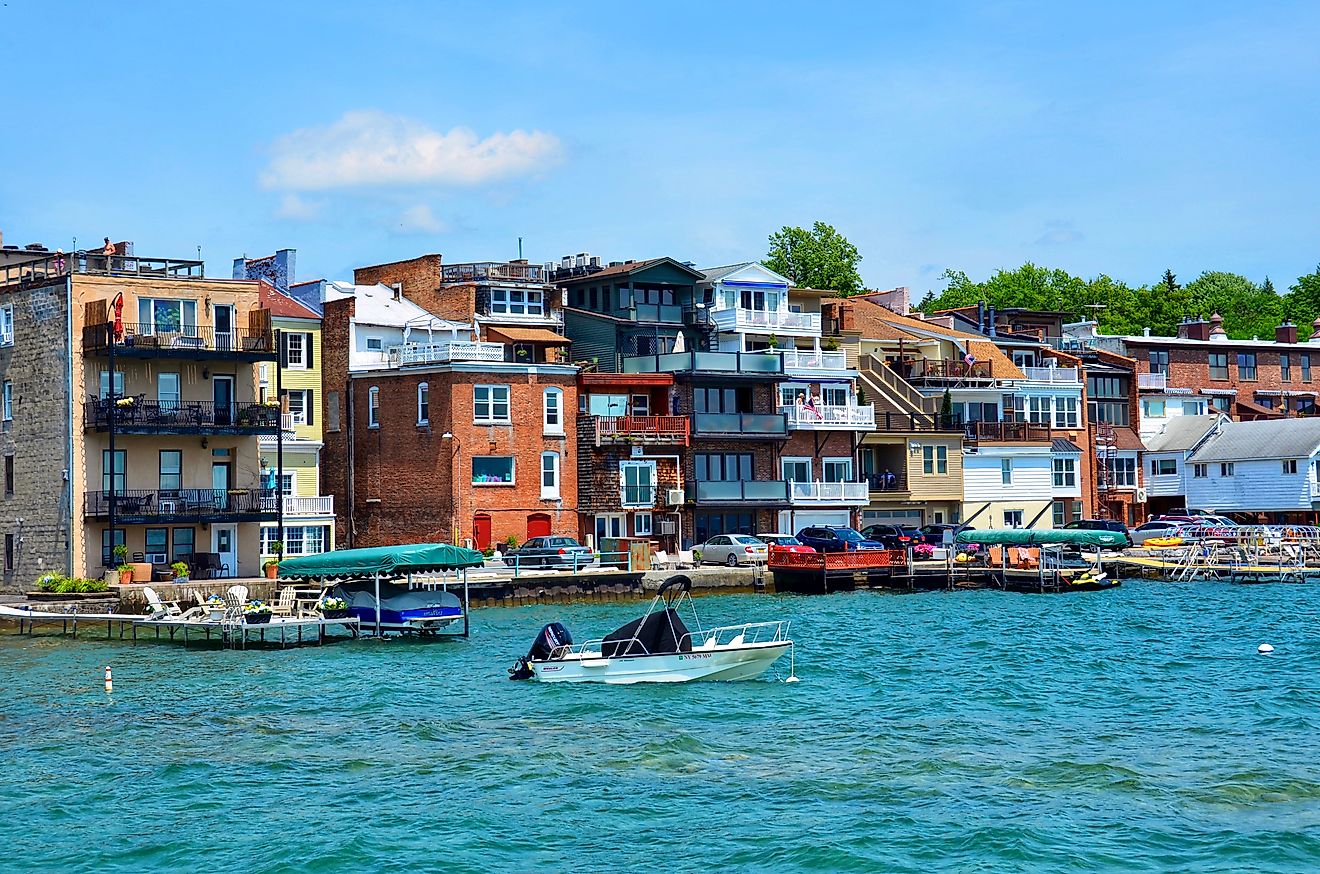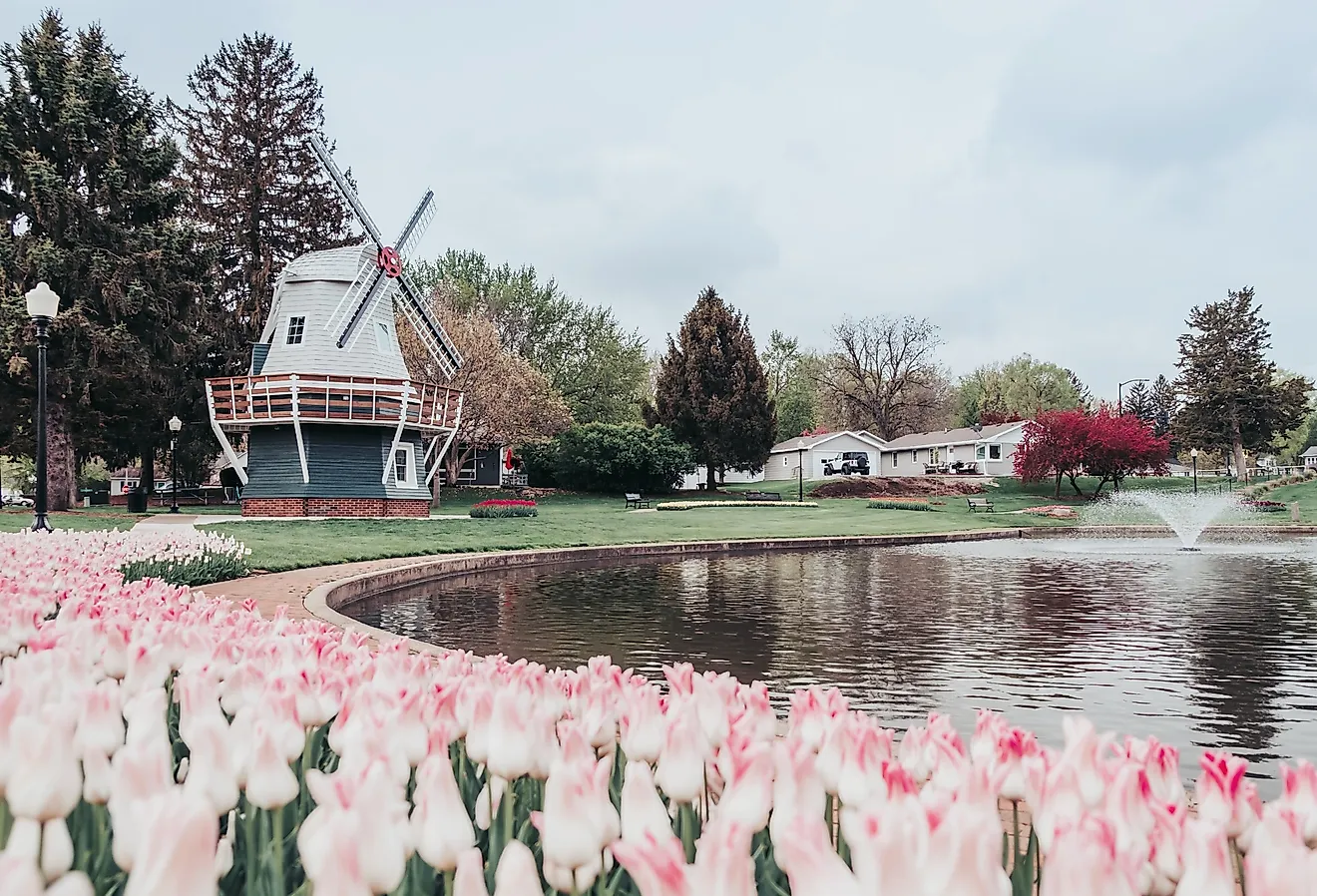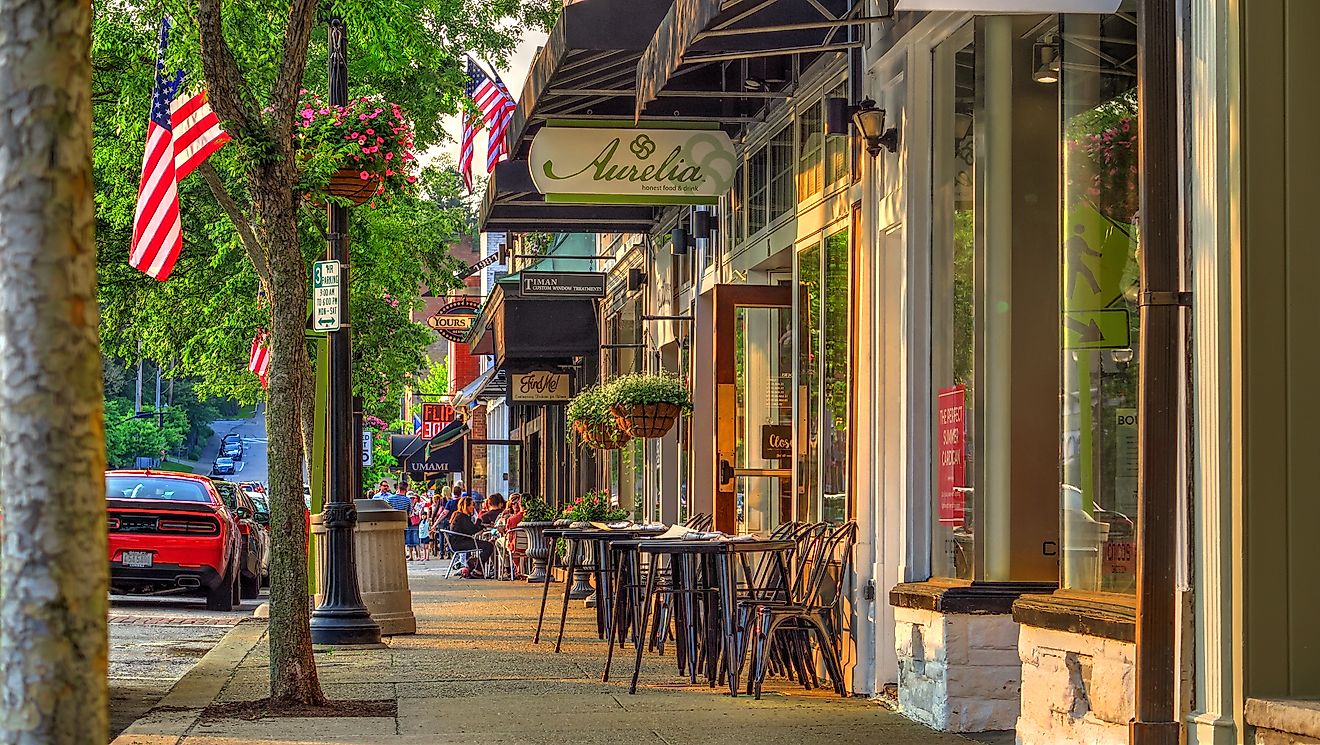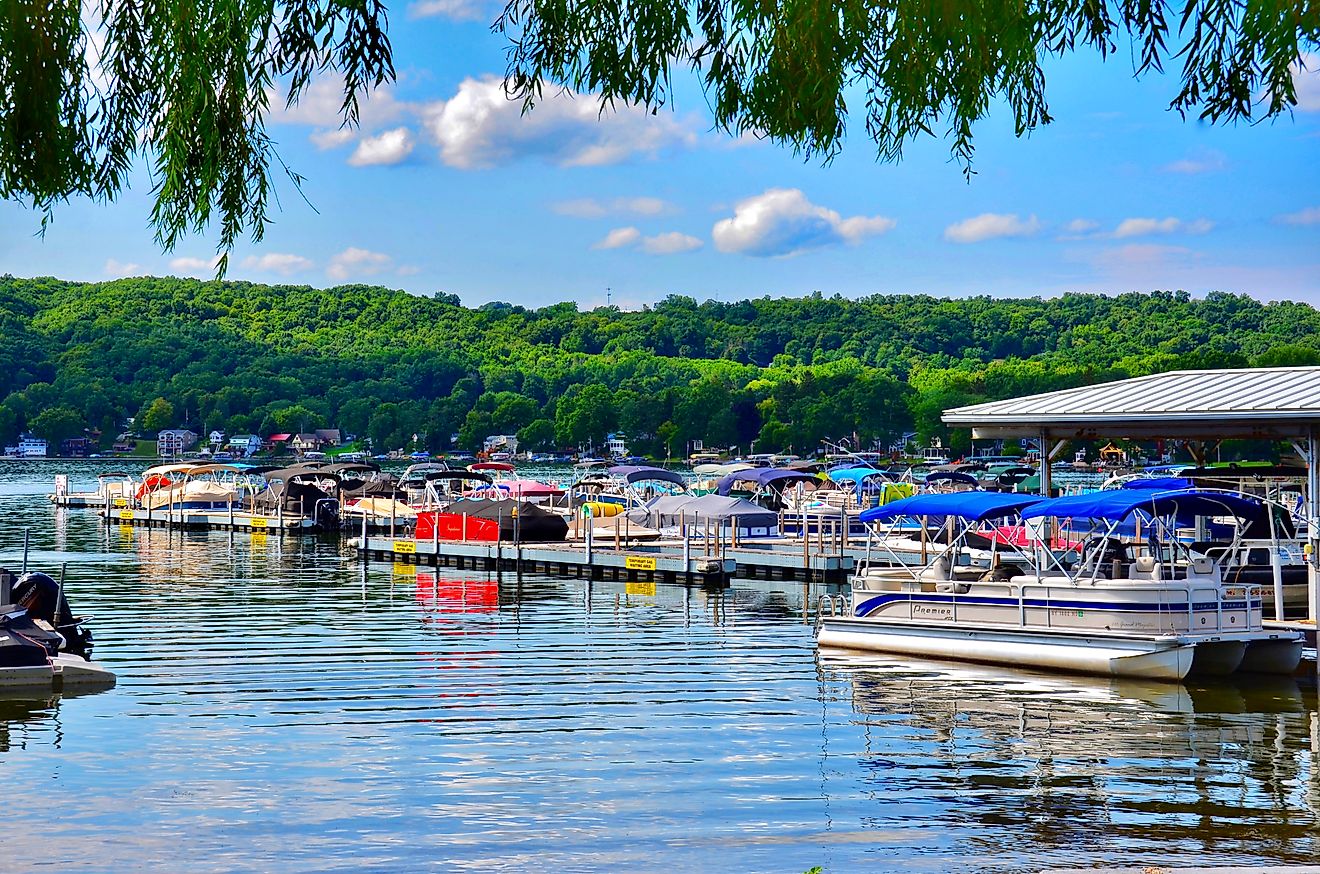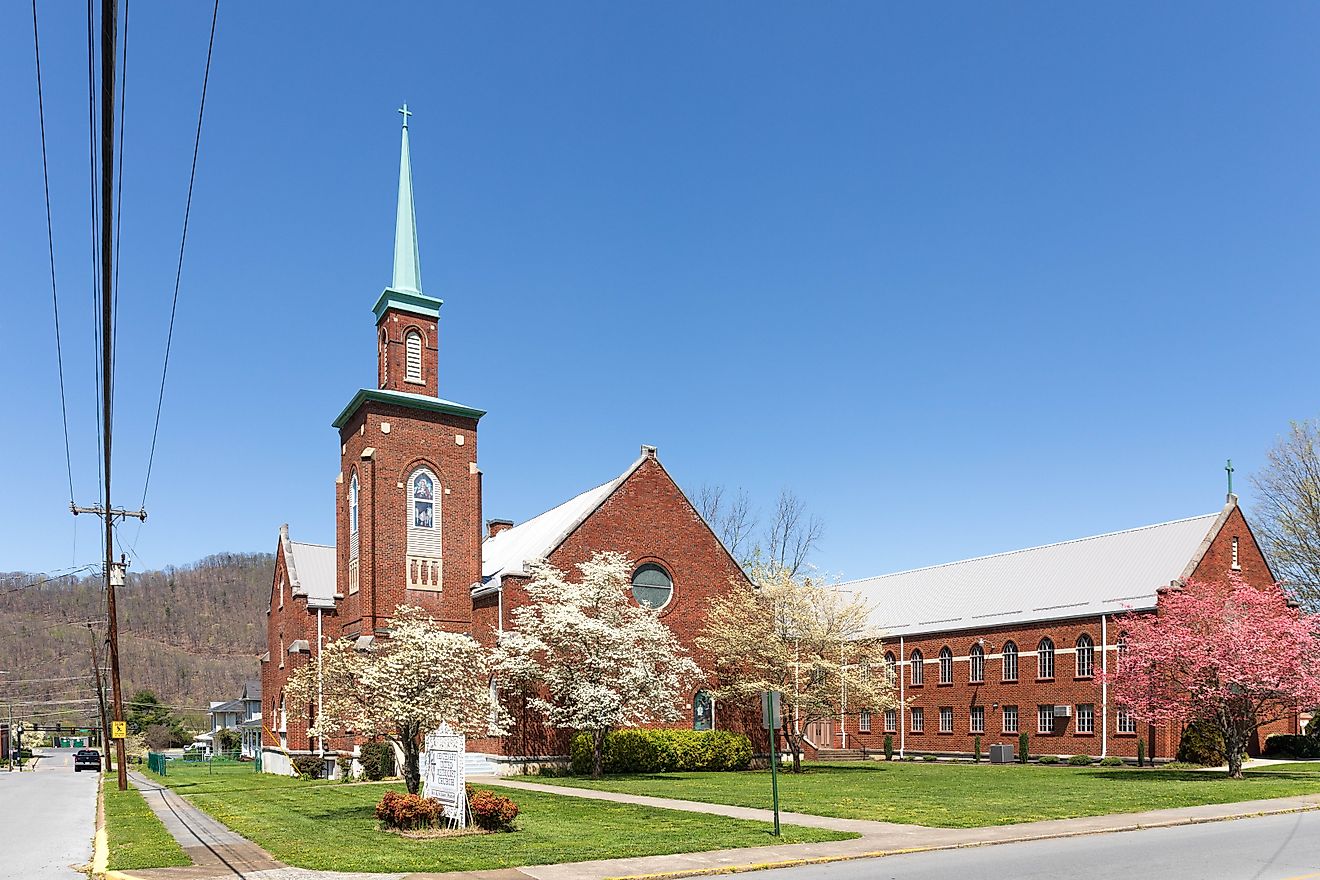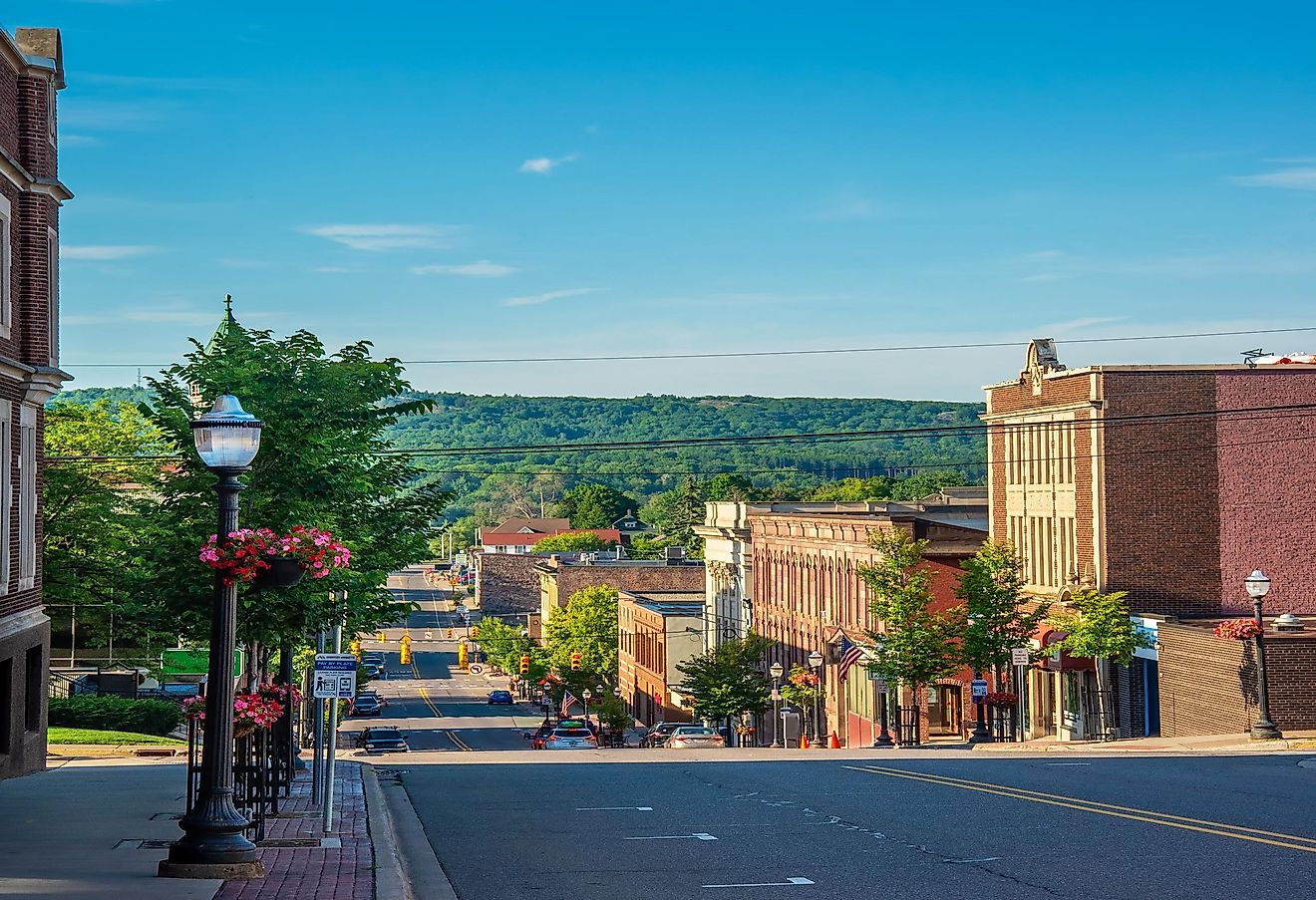
These Small Towns in Tennessee Have the Best Historic Districts
While major Tennessee cities like Nashville, Memphis, and Chattanooga need no introduction, the “Volunteer State” boasts countless smaller communities you’ve possibly never heard of that deserve attention. From the state's oldest town, Jonesborough, to the well-preserved Victorian-era architecture of Dyersburg, many of these small towns boast impressive historic districts that encapsulate the USA’s remarkable transformation from colonial backwater to the world’s major superpower.
Whether you’re planning a weekend getaway to the Tennessee countryside or a fun family day trip, Tennessee's small towns offer plenty of fun things to do for those willing to venture a little off the beaten path.
Jonesborough
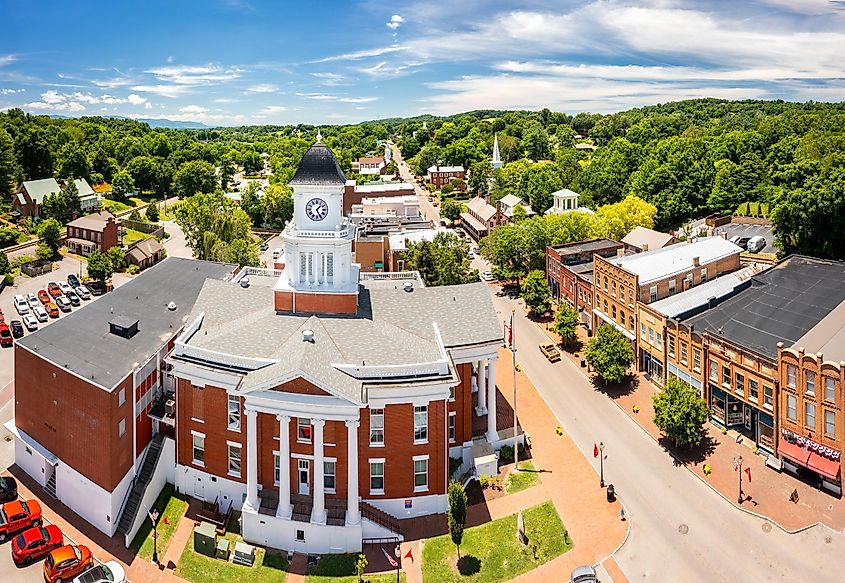
Jonesborough proudly wears the title of Tennessee's oldest town. Established in 1779 in the picturesque foothills of the Appalachian Mountains, this quaint town is home to one of the state’s most interesting Historic Districts. Here you’ll find numerous meticulously preserved buildings, including the Chester Inn, a State Historic Site, which has welcomed guests since the 1790s. Nearby, the Jonesborough Courthouse, a stunning 1847 Greek Revival structure, dominates the pretty town square.
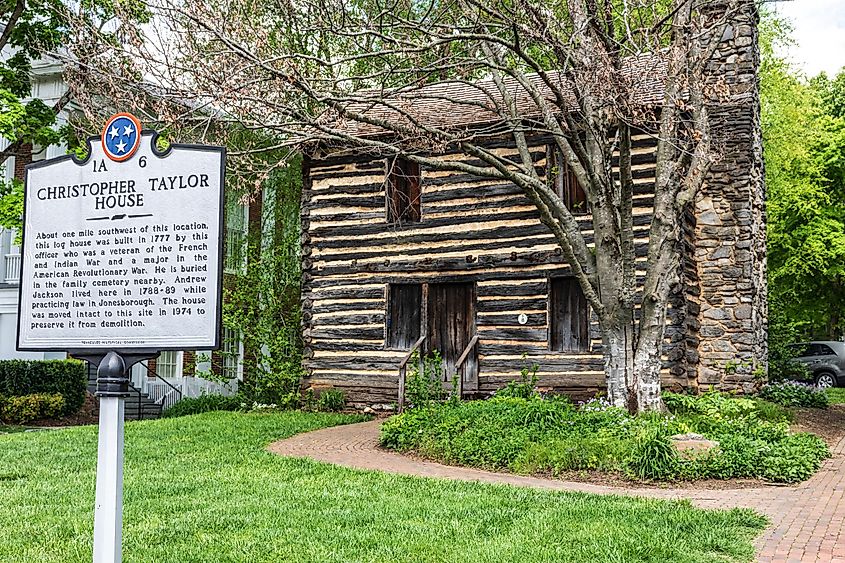
Another notable site is the Christopher Taylor House, an 18th-century log structure that once hosted President Andrew Jackson. Perhaps fittingly, Jonesborough is also home to the Heritage Alliance of Northeast Tennessee and Southwest Virginia which offers insights into the region’s rich past.
Covington
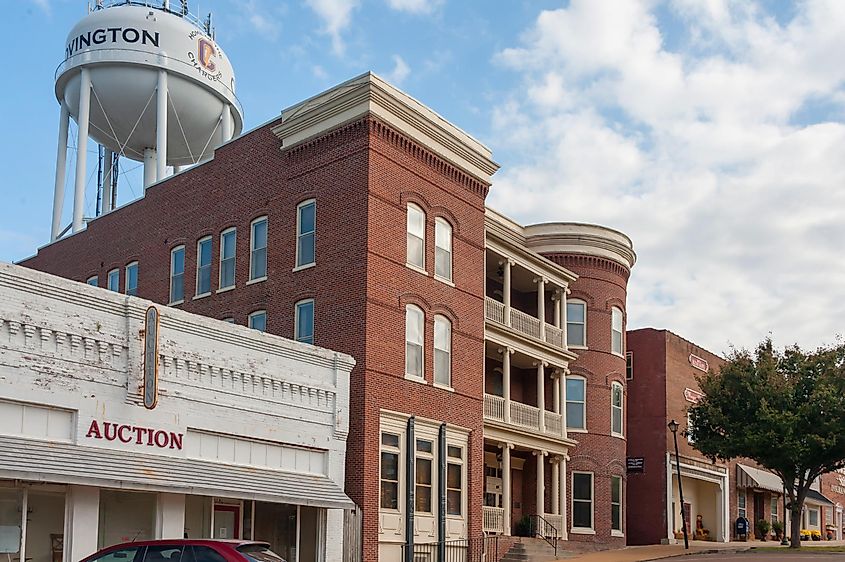
Located in Tipton County and an easy 40-mile drive northeast of Memphis, Covington was founded in the early 1800s and features many beautifully preserved buildings. Some of the best are located in or near the historic town square and are listed on the National Register of Historic Places. Notable examples include the Tipton County Museum with its displays and artifacts related to the area's history; it also once housed a National Guard armory.
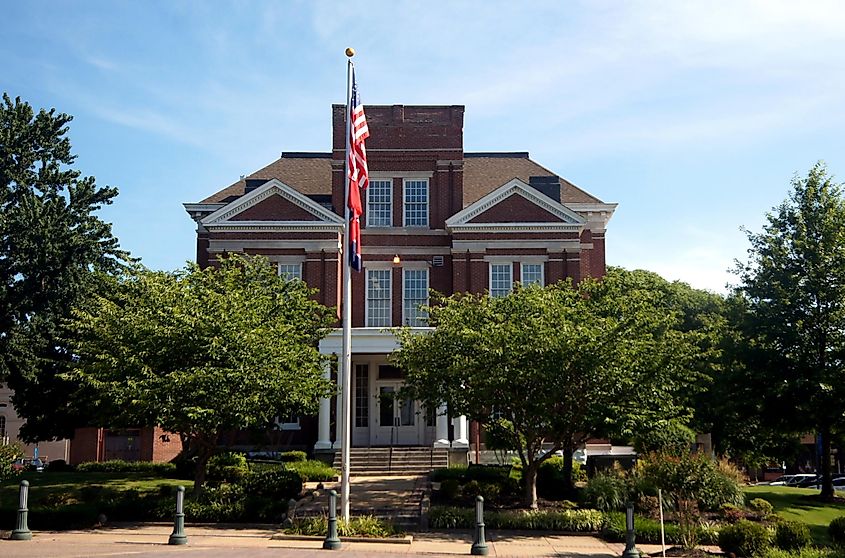
The South Main Historic District is a must-visit and comprises a sizeable collection of well-preserved residences dating from the late 19th to early 20th centuries. Have your camera ready for Dacus-Hill House, an early 1900s residence that stands as a fine example of the Colonial Revival architectural style prevalent in that era.
Dyersburg
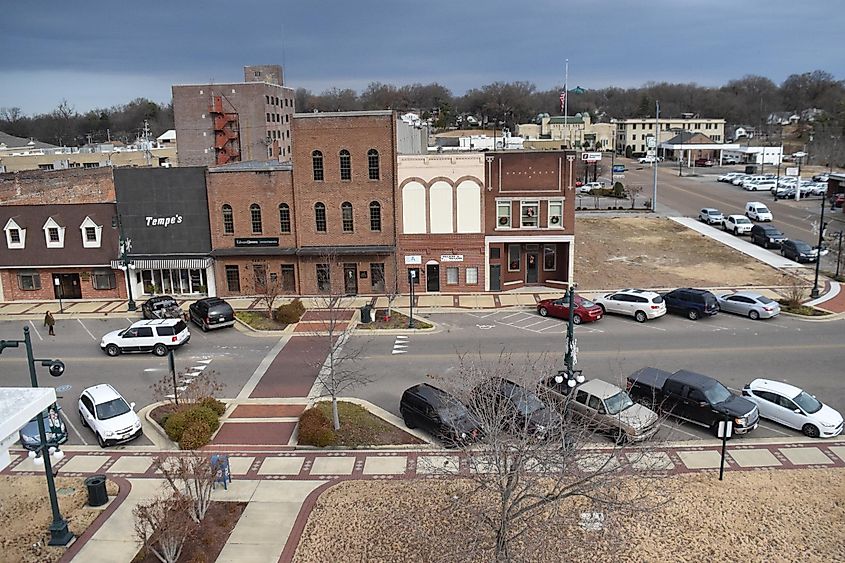
Dyersburg is located along the Forked Deer River and was established in the early 19th century as a major transportation hub connecting the southern states of America. Evidence of this important role can be seen today in the many well-preserved buildings in Dyersburg’s historic district, where you’ll see everything from Colonial Revival to Queen Anne architectural styles.
Among its most cherished landmarks is the Dyer County Courthouse, set in the town square and surrounded on all sides by attractive old buildings. It's also where you’ll see the Confederate Monument, which pays homage to the soldiers of the Civil War who once lived here.
Dandridge
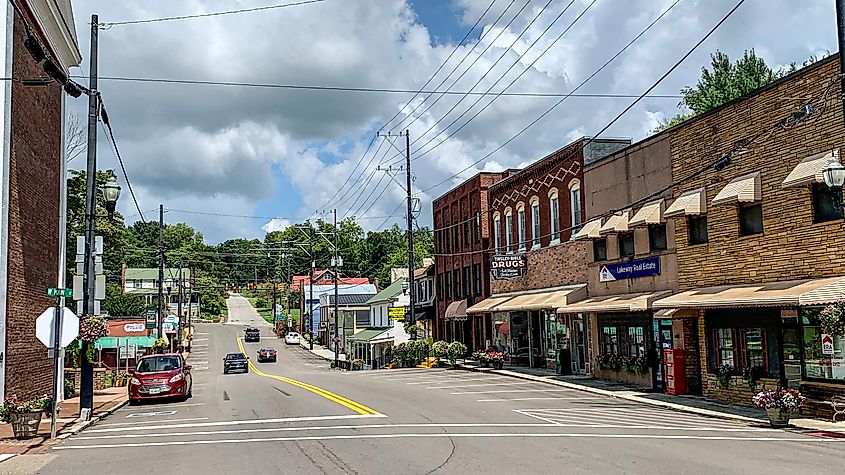
One of the state's oldest towns, Dandridge can trace its roots back to 1783 with the arrival of the region’s first settlers. Located on the shores of Douglas Lake just 30 miles east of Knoxville, it makes for a great Tennessee day trip destination. Explore the Dandridge’s historic downtown core and you’ll stumble across the old Jefferson County Courthouse, built in 1845 in the then-popular antebellum style and featuring classic brickwork and a photo-worthy clock tower.
Remarkably, this landmark was saved from the rising waters of Douglas Lake in the 1940s by a dike that still protects the historic downtown, where you’ll find many fine examples of well-preserved structures from the late 18th and early 19th centuries. The Harrisburg Covered Bridge is another landmark worth seeing. Built in 1875, it’s a prime example of 19th-century engineering that still impresses.
Rogersville
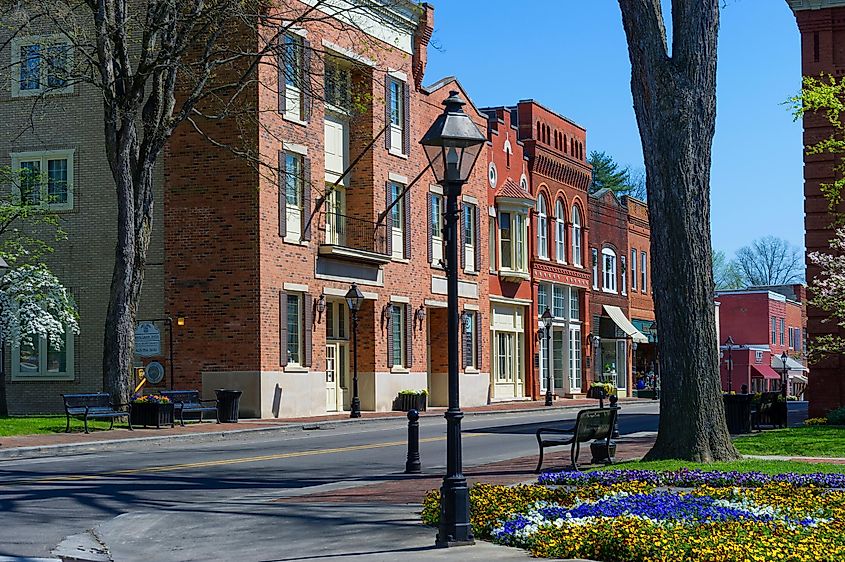
Rogersville was founded in 1789, with much of its earliest architecture still to be seen along its historic Main Street. Architectural flourishes encompass everything from Federal, Greek Revival, and Colonial-era stylings, making it a veritable smorgasbord for history buffs. The Hale Springs Inn is a favorite. Dating from 1824, this historic hotel has welcomed several U.S. presidents and remains a functioning inn today.
Another important landmark is the Hawkins County Courthouse, a centerpiece of the town since the 1830s with its distinctive brick façade. Close by, the Rogers Tavern was built in the early 1780s and is believed to have once hosted President Andrew Jackson.
Kingston

Situated on the banks of the Tennessee River, Kingston was founded in 1799 and has the unique claim to having been the state capital for a single day. This interesting occurrence took place in 1807 as a result of a treaty negotiation with local Cherokee tribes. Among its most iconic landmarks is the red-brick Roane County Courthouse, a beautiful example of antebellum architecture built in 1854 and one of the oldest functioning courthouses in the state.
Just two miles southwest of the town center, Fort Southwest Point is another pivotal site worth visiting. It was erected in the late 18th century and played a crucial role during westward expansion and interactions with Native American tribes.
Columbia
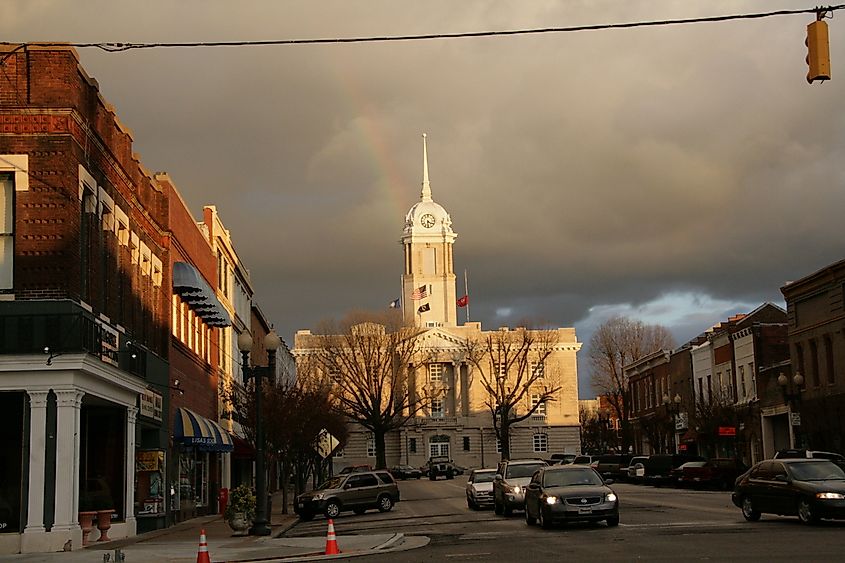
Despite being one of an estimated 29 towns and cities to carry the name, Columbia, TN, has a number of unique features that make it worthy of a visit. First off, it’s known as the "Mule Capital of the World," a title it has claimed for being a major mule trading center since being founded in the 1700s. These beasts of burden are still celebrated here today with its annual Mule Day festival.
Major landmarks include the James K. Polk Home and Museum, the only remaining residence of the 11th U.S. president, other than the White House. This stately structure offers a deep dive into the life and times of Polk through its exhibits and artifacts. Other notable features of Columbia's downtown historic district include the Maury County Courthouse, a striking 1904 structure, and the Athenaeum Rectory, a remarkable example of Gothic Revival.
Bell Buckle

This list of small towns in Tennessee with important historic districts wouldn’t be complete without including the tiny community of Bell Buckle. Home to just 399 people at last count, Bell Buckle has become something of a must-visit for its vibrant arts scene, in addition to its charming historical character. Founded in the 1850s, its small yet charming historic district is home to a number of Victorian-era buildings that today house antique shops, boutiques, and eateries.
Webb School, a prominent historic landmark founded in 1870, plays host to the Webb Art & Craft Show., while the annual RC Cola and Moon Pie Festival celebrates two of the South's favorite treats. Finally, check out the Bell Buckle Train Depot which dates back to the town's railroad days.
The Final Word
There’s no doubt that Tennessee is rich in history, and the state’s past is very easy to explore by visiting some of its many small towns. We’ve included some of the very best here in our list of the most impressive historic districts in Tennessee’s small towns. So if you’re looking to explore, be sure to bookmark this page for ideas and inspiration when planning your Tennessee travel itinerary.

